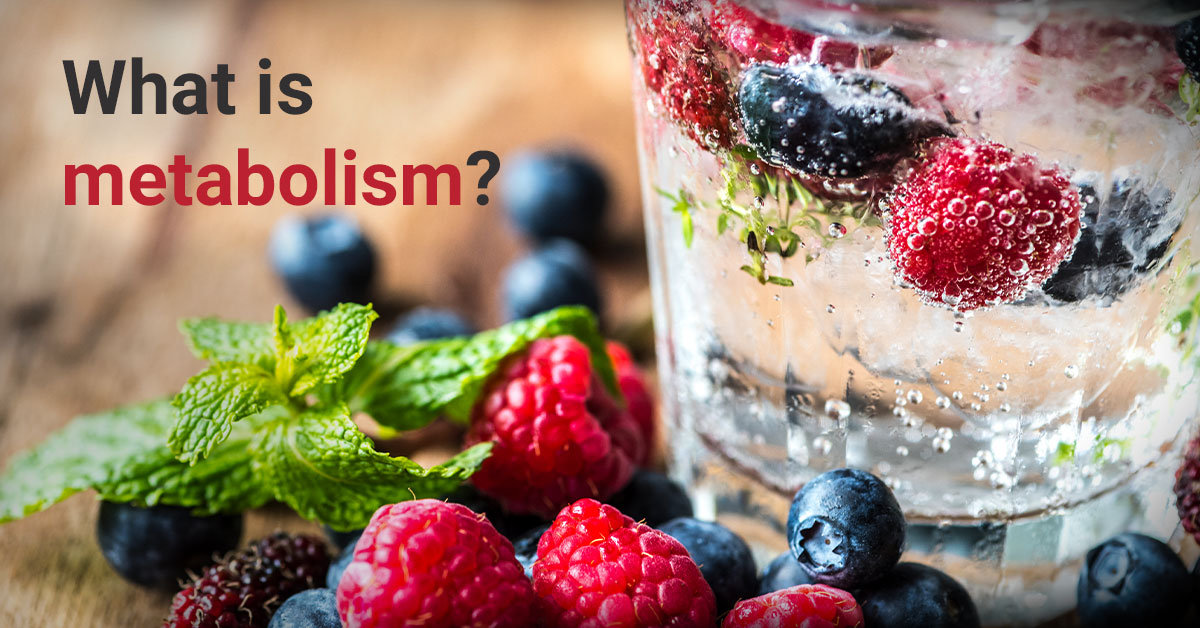Metabolism: Effects on the Body

What is Metabolism?
Metabolism is often blamed as an excuse for not losing weight. While this is partially true, it is not always the case. The body’s metabolism depends on numerous factors.
In layman’s terms, metabolism is a chemical process responsible for sustaining our cell’s normal functions and organs in the body. It is also responsible for converting food into energy to carry out various body processes.
The type of food you eat plays a massive role in building the metabolism pathways in your body.
How does Metabolism Work?
Food serves as the primary source of nutrients for our bodies. The nutrients consist of carbohydrates, proteins, fat, vitamins, minerals and other elements. Carbohydrates are converted into simple sugars like glucose, while fats are converted into fatty acids and proteins into amino acids. They are necessary for bodily functions or metabolic activities that repair body tissues, build and upkeep the same.
How to Boost Metabolism?
Your metabolism depends on your age, gender, weight, height and genetics. People with more muscular bodies have a healthier metabolism than people with excessive fat in their bodies. People who maintain a healthy diet and exercise regularly have better metabolism. You can boost your body’s metabolism by maintaining a healthy lifestyle and eating healthy.
Role of Food in Metabolism
Following a diet rich in nutrients and minerals can drastically improve your metabolism. Your metabolism is often not the reason for weight gain. Taking in more calories than you burn is the main reason for your weight gain. In such cases, you may require metabolism boosters for a faster metabolism.
The nutrients gained from food play a vital role in boosting your metabolism in the following ways:
Carbohydrates
The majority of your diet is consumed in the form of carbohydrates. They mainly come in three variations – sugar, starch, and fibre. Both sugar and starch are essential energy sources, while fibre helps to provide the bulk of the diet. Foods that contribute towards carbohydrates include potatoes, bread, wheat and rice.
Proteins
Amino acids are essential to build and repair muscles in the body. However, the body cannot synthesize it by itself. This is where protein comes in. They are rich in amino acids and help the body to carry oxygen, build cell structure and help with other bodily functions. Foods like grains, vegetables, soybeans, milk and eggs are rich protein sources for a healthy metabolism.
Fat
For the most part, fats are divided into two broad groups. Saturated fats are mostly linked to heart disease and other problems. However, unsaturated fatty acids like arachidonic acids, linolenic and linoleic acids are essential. They offer concentrated pockets of energy that act as a reserve whenever required.
Vitamins and Minerals
Both vitamins and minerals do not directly contribute to the metabolism process. However, they play an essential role in creating metabolic pathways. Your body comprises more than 50 elements, of which 25 are considered crucial. Most of these elements are available in small amounts in all types of foods.
Metabolism Boosting Foods
Particular foods act as a metabolism booster for your body. You can take these foods either regularly or alternatively. However, make sure that they are included in your diet in a balanced way. Make sure that you are getting all the other forms of nutrients too. Some popular metabolism boosters include:
- Fish
- Eggs
- Meat
- Legumes
- Green tea
- Nuts and Seeds
- Energy Drinks
- Dairy Products
- Apple Cider Vinegar
- Coffee / Caffeine (non-sweetened)
- Spices (Jalapenos, Bell Peppers, Chilies, etc.)
Apart from maintaining a healthy diet, it is also essential to burn those calories. Regular exercising, cycling, walking, jogging, running, swimming and several other physical activities can help you maintain a healthy metabolism.
Metabolism is a very critical process that helps your body survive. Processes like oxygen absorption, the beating of the heart and blood flow even when the body is at rest result from metabolic activities. As all these bodily functions work round the clock, our body provides the energy needed to perform these tasks through metabolism.
At Regency Health, you will find highly qualified doctors who will help you with any queries related to your body’s metabolism. You can always rely on us for expert advice on the best healthcare procedures and lifestyle changes. Our Bharose ki Salaah always aims to keep your body in the best shape.
Request a call back


 Call-an-Ambulance
Call-an-Ambulance



